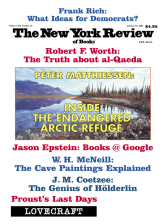On and after September 11, 2001, I wrote a series of columns examining who these people were who had attacked the Twin Towers and the Pentagon, and why they were determined to battle the power and influence of the United States in the Mideast—particularly in Saudi Arabia, Osama bin Laden’s home, and location of the Islamic holy places.
They were religious radicals and also utopians, having no chance of success in recreating in our day their (largely imaginary) vision of the Arab world during the years when the followers of the Prophet Muhammad came out of Arabia into present-day Iraq, seized Syria and Jerusalem from the Byzantine Eastern Roman Empire, then conquered Egypt and Persia, and created a Mediterranean empire eventually reaching the Pyrenees and Vienna.
Men with box cutters and bombs were not going to rebuild this empire, nor were Osama bin Laden’s militants in their Afghan caves (although to judge from President George W. Bush’s “Islamo-fascist” speeches of recent days, he thinks they can do it, unless the Republican Congress is reelected this November).
These new Islamists were not focused on Israel, but on Islam: its integrity, its purity, its future—and its enemies. Their beliefs came from the Wahhabi Muslim reform movement of the eighteenth century, which held that all changes or accretions to Islam since the third Islamic century (the ninth century AD) are illegitimate and must be eliminated.
One of my readers (in The Chicago Tribune) angrily e-mailed me in September 2001 to demand why I was going on about the historical and cultural background. “Are you trying to rationalize the murder of 6,000 innocent civilians?” he asked (the actual number of casualties was still unclear). He said he didn’t care who the terrorists were or why they did what they did. He just wanted revenge. If I tried to explain who they were, I must be on their side.
This was a comprehensible, but destructive, reaction, because it was the White House reaction as well, sending the government off on the course that five years later has produced wars the United States is losing in Iraq and Afghanistan, and soon, it may be, in Iran and even Syria.
My correspondent in Chicago did not want to know who these people were, and to judge from their actions, neither did the Bush White House. Yet the United States government knew a great deal about al-Qaeda—which, after all, was the offshoot of a CIA initiative in Afghanistan during the Soviet occupation.
The CIA and the Department of State knew all about the rise and influence of Islamic fundamentalist currents in the Middle East and elsewhere, as did the police and security services of several European countries, as well as academic specialists in the United States and Europe.
This knowledge was apparently of no interest to the White House. Richard Cheney and Donald Rumsfeld, for their part, already knew that they wanted to seize Iraq, for reasons yet to be acknowledged. A realistic assessment of the terrorism threat, which had nothing to do with Iraq (as Bush and Cheney in the last few days have both assured us, five years late), would have presented it as of modest and potentially containable scale, as has proven to be the case.
President Bush and Karl Rove, his propaganda packager, preferred the global cold war model—the “long war”—capable of being presented to the American public as a communism-like “struggle for the world,” so as to mobilize Americans around George Bush, wearing his flight jacket.
Iraq now seems all but certain to be left broken as a state, immersed in sectarian violence and terrorism, in far worse condition than it was under Saddam Hussein’s secular dictatorship (which would have come to an end when Saddam died, or when he was overturned by a coup, or a revolt, as has happened to all of modern Iraq’s previous leaders).
Afghanistan already is once again the world’s principal producer of opium poppies, dominated by regional warlords, with the Taliban back and in control of a large part of the country beyond Kabul; the central government is feeble and American and NATO forces are struggling to enforce Kabul’s authority.
For those who like conspiratorial explanations, involving oil and Israel, consider that now Iraq will produce little or no oil for the United States, or anyone else, for years to come, and the Saudi monarchy and the Gulf oil-producer governments are newly threatened by fundamentalist militants.
Saddam Hussein has been eliminated as a distant threat to Israel, and a ring of aggressive Shiite states and movements has been substituted, with Hezbollah having already brought Israel under rocket fire, and humiliated the Israeli army. Iran’s influence in the world has grown larger than ever.
These results are due in part to the amateur geopoliticians of the neoconservative New American Century initiative, and their Washington allies. Israel needed no such friends, nor does George W. Bush, who with their help, on the fifth anniversary of the September 11 attacks, looked more than ever as though he’ll finish his term as the most disastrous president in American history.
Advertisement
—September 21, 2006
This Issue
October 19, 2006



